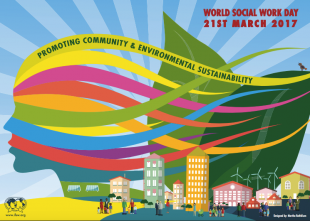I was delighted recently when Dr Ruth Allen joined me and the Social Care Institute for Excellence (SCIE) for a workshop focusing on ‘strengths based social work with adults’. The former Director of Social Work at South West London and St Georges' Mental Health NHS Trust, now Chief Executive of the British Association of Social Workers (BASW), reflects on its purpose and the insights gained…

The aim was to explore what strengths based social work really means at individual, family, community and collective levels. We asked ourselves:
How do we enable people to identify their social, practical and emotional assets and support them to solve personal difficulties and sustain positive change.
What skills and organisational models do we need as practitioners to make this happen?
And how do we sweep away old thinking, practices, organisational models and bureaucracies that hinder self-determination and agency?
The workshop quickly moved into the territory of community assets and supporting change within neighbourhoods, communities and the places where people live. This chimes with this year’s theme for World Social Work Day on 21 March: ‘Promoting sustainable communities and environments.’
I wondered how relevant this theme would seem to the many UK social workers currently working in bureaucracy-laden casework roles. However, the workshop left me feeling optimistic that social workers with adults and professional leaders are beginning to free themselves from institutionalised thinking. Indeed, they are developing foundations for humanistic and relationship based adult social care and beginning to work preventatively within communities.
Social work is nothing if it is not about enabling people to use and develop their strengths and abilities. We:
- intervene to prevent harm and abuse
- reduce obstacles and discriminations stopping disabled people getting on with their lives
- work to restore family relationships that have broken down
So, to my mind we are there, first and last, to respect and help people build on their strengths, abilities and social systems of support.
Often, we are advocates, protecting rights and citizen entitlements, but we are not there to solve problems for people - or to compensate and act as a crutch.
As we worked through these significant issues we asked ourselves how we might turn these high-minded intentions into reality. There were many excellent examples in the room from adult social care services.
From restorative practice with families in Greenwich, to the banning of labelling, bureaucratising language and processes - and their replacement with relationship building and community-focused approaches and dialogue - in Leeds, to the inspirational grassroots local area coordinators in Derby, and the national drive to Make Safeguarding Personal – there is much to celebrate.
The personal is political
During the workshop, I had the chance to address participants and spoke about the ‘6 Ps’: Practice, Professionalism, Public and Press Perceptions, and the Politics of social work. I feel they define important aspects of the way we embrace strengths based social work with adults.
As we develop the practice capabilities needed for more authentic strengths based approaches, we need to grasp the opportunity to develop and define our professionalism and continually evaluate our practice, through dialogue and co-production with people who use our services.
Our practice could also be a key part of developing new perceptions of social work with the general public and the press as we show ourselves to be often partners and enablers of positive change. We need to demonstrate our closeness to the communities we serve, and articulate how our practice embodies our values, skills and impact. And it can and should be a practical expression of the empowering political dimensions of our mission as a profession.
Strengths based social work can be caricatured or misused to downplay the realities of material disadvantage – as if focusing on strengths and assets is a simple justification for reducing public spending or throwing people back on inadequate resources.
But to me it means the opposite.
It means getting alongside people more closely and supporting the connections and relationships they can and want to make to be part of change, for themselves, their families, communities and beyond. We do our bit to feed the flames of an individual’s self-determination, helping them find their own solutions as much as possible. It’s our role to help remove obstacles to progress and wellbeing.
Amazing People
So finally back to the workshop. I was struck by a positive entreaty from Sue Bott of the National Co-production Advisory Group (and a user of services herself) for all practitioners to continue their journey towards better ways of working by ‘looking in the mirror every morning’ and telling themselves how amazing they are.
And then to carry this into our practice and our relationships with people using our services, celebrating their amazing humanity and our own, conversing with and supporting people to take their own actions and live their own lives.

3 comments
Comment by Sandra posted on
Your blog 'Give me strength' is thought provoking and interesting. As an ex health employee suddenly thrust into receiving social care I would implore that the profession adds 'Person' to you 6 p's! Why- because while all the latest massive efforts and energy are poured into helping folk like me against new legislation etc that means you ask 'what do you want' ?outcome etc 'that things would be better if I the customer had any real clue what might be done/achieved and what SW s can/cannot do. I have a superficial knowledge but not enough when thrust into the state of needing help. Like many I feel the SW role is not really appreciated because in general we have no idea of what powers or intent of it is. This I know is a big topic which I cannot fully explain here but I extol SW looking in the mirror and telling yourselves how marvellous you are - but how about telling more to the public and helping them to use the service more effectively? Even. Now I am not sure what the SW does!
Comment by Lyn Romeo posted on
Thanks for you comments Sandra. It is so important that social workers can be clear about what they can do to support people and what can be achieved. This can vary depending on the context within which they are working, but it's really important therefore that each social worker is able to explain their role clearly to the people with whom they are working.
Comment by Margaret Turner posted on
I am a retired mental health social worker still involved voluntarily and as a practice teacher. I feel very, very saddened by tales of social workers not caring/trying to catch you out/not responding/not addressing endings/not being sensitive to the needs of people from ethnic minorities, to there not being a social worker at all to help a traumatised disabled woman - who lives alone and who has no family - to return home safely - no wonder she was suicidal......
I don't see this as personal failure so much as feeling that the way the government has treated public services has had a toxic effect on their management and on the values and behaviour of practitioners, alas.